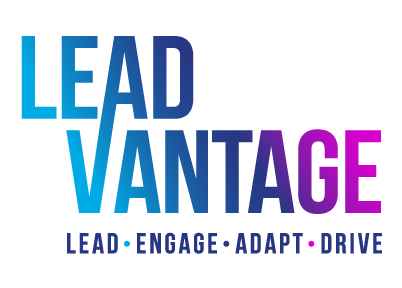Do most of your meetings leave you feeling uninspired? When was the last time you left a meeting saying, “That was awesome!” If these questions resonate with you, Cameron Herold’s book, “Meetings Suck: Turning One of the most loathed elements of business into one of the most valuable,” might hold the key to transforming your perspective on meetings.
The Three Pillars of Successful Meetings

1 – The Importance of Meetings:
Herold begins by highlighting the importance of meetings, emphasizing their potential as a powerful tool for collaboration, decision-making, and team building.
“Meetings, despite their reputation, can be a valuable asset for your business.”
2 – How to Successfully Run a Meeting:
In this section, Herold provides practical insights on running effective meetings, starting with the importance of having a clear agenda.
“Agendas are a must-have ‘to understand the flow of a meeting, to stay on topic, and to save time.'”
Herold stresses the significance of hierarchy within a meeting, encouraging everyone to contribute for a culture of confidence and idea-sharing.
“As CEO, one of the things I’ve found to be extremely useful in helping people grow is my speaking less.”
Recognizing and catering to different personality traits is another key aspect to avoid dominance by certain individuals. We need to be mindful of personality traits (dominant, expressive, analytical, and amiable) and how to cater to them.
Roles within a meeting, such as the moderator, parking lot, timekeeper, participants, and closer, are essential for maintaining focus and productivity.
“Frontline staff should walk into every meeting with two purposes – to add value and receive value – in mind.”
3 – Various Types of Meetings:
Herold dives into different meeting types, emphasizing their unique roles in organizational development, team building, and goal setting.
“Estimate how long you think a meeting, or task, will take, and then cut it in half.”
He underscores the importance of starting and ending meetings on time and compressing time for efficient time management.
From quarterly board meetings to daily huddles, each type serves a specific purpose in the organizational framework.
Effective Communication Strategies
Encouraging effective communication is crucial for successful meetings. Herold highlights the tendency for people to shy away from sharing dissenting views and suggests strategies to overcome this barrier.
“People shy away from speaking up and sharing a dissenting view because it makes them uncomfortable.”
By creating an inclusive environment where everyone feels comfortable sharing their thoughts, teams can harness the power of diverse perspectives.
Five Tips to Run Successful Meetings
Now that we’ve explored Cameron Herold’s insights on turning meetings into valuable assets, let’s distill some actionable tips to ensure your meetings are not just productive but also leave participants saying, “That was awesome!”
Craft a Clear and Concise Agenda:
Start every meeting with a well-defined agenda. Outline key discussion points, allocate time for each, and share it in advance. This not only keeps everyone on track but also allows introverts time to prepare their thoughts.
Foster a Culture of Equal Contribution:
“If you raise the skill level of your people, you will raise their confidence.”
Encourage active participation from all team members. Ensure that diverse personality traits are considered, allowing quieter team members to share their ideas before moving to more talkative individuals. This inclusive approach fosters a culture of confidence and creativity.
Define Clear Roles for Meeting Participants:
“Frontline staff should walk into every meeting with two purposes – to add value and receive value – in mind.”
Assign specific roles to meeting participants, including a moderator to keep discussions on track, a parking lot to capture brilliant ideas that couldn’t be addressed, a timekeeper to ensure agenda items are covered within the allotted time, and a closer to assign duties and timelines at the end.
Optimize Meeting Types for Different Purposes:
“Meetings serve purposes: information sharing, creative discussion, or consensus decision.”
Tailor your meeting types to their intended purposes. Whether it’s a quarterly retreat for team building, a financial meeting for transparency, or a weekly action review to keep everyone on the same page, choose the right format to achieve your goals efficiently.
Encourage Open Communication:
“People shy away from speaking up and sharing a dissenting view because it makes them uncomfortable.”
Create an environment where open communication is not just encouraged but celebrated. Actively seek input from all team members, starting with quieter types and moving towards more talkative ones. By fostering an inclusive atmosphere, you tap into the collective intelligence of your team.
Incorporating these five tips into your meeting strategy can significantly enhance the effectiveness and impact of your gatherings. Remember, the goal is not just to have meetings but to have meetings that truly matter and drive your team towards success.
“Meetings Suck” by Cameron Herold offers a refreshing perspective on turning meetings from dreaded obligations into valuable opportunities for growth and collaboration. By implementing Herold’s strategies, organizations can transform their meeting culture, leaving participants inspired and engaged. It’s time to reimagine meetings as a cornerstone of success rather than a necessary evil.
Lead Vantage offers training to enhance the efficiency and effectiveness of your meetings. We can help you transform meetings from mundane routines into dynamic sessions where ideas flourish and decisions are made with clarity. Contact us today: https://leadvantage.ca/book-a-call/
Don’t forget … whether you are leading a team of two or two hundred, you’ll get fresh perspectives and free resources to help you unlock your full potential. Click here to get access to our leadership articles and gain practice tips and insights to help you thrive in today’s dynamic business environment. https://leadvantage.ca/blog/





